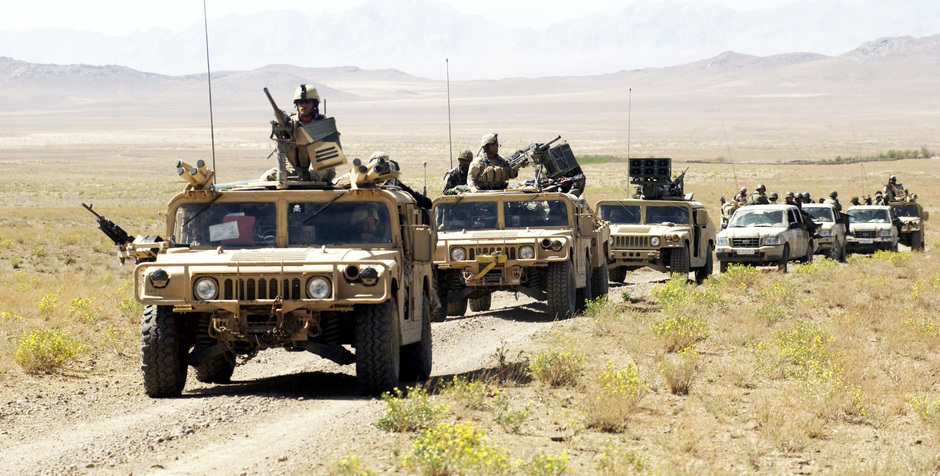The National Security Challenges Facing the Trump Administration
When Donald J. Trump becomes the 45th President of the United States at noon, January 20, 2017, he will inherit the gravest national security landscape since the end of World War II. The legacy of the Obama Administration bequeathed to President-elect Trump is an America with limited resources due to the weakest economic recovery since 1949, diminished standing in the world due to an inconsistent and feckless foreign policy while “leading from behind”, uncertain allies who question America’s willingness to protect its friends, and emboldened enemies who doubt the willingness of the United States to use its considerable military power.
In a mere eight years, we have witnessed the following:
- Russia seizing Crimea while still fomenting unrest in the rest of Ukraine, and Vladimir Putin threatening our NATO allies that border Russia. Putin has allied himself with Assad’s Syrian regime and threatened to shoot down our aircraft if we intervene. Meanwhile, Russia and Syria continue to perpetrate the most serious war crimes in a generation, indiscriminately bombing civilians and hospitals; President Assad has used chemical weapons on his own people several times.
- China continues to claim territory it does not own in international waters, while increasing its military spending and developing weapons that can threaten Japan, South Korea and U.S. Forces in the Pacific.
- North Korea, already possessing nuclear weapons, continues to develop and test its intercontinental ballistic capabilities that will be capable of striking the western United States.
- Iran is on a slow, but certain, cadence to obtain nuclear weapons. Thanks to President Obama’s nuclear deal, it is flush with cash to continue its mission to export terrorism and to purchase advanced strategic weapons from Russia and China. Iran continues to test ballistic missiles in violation of the questionable nuclear agreement, as well as in defiance of a U.N. Security Council resolution.
- Iran and Russia continue to harass U.S. aircraft and naval vessels with impunity; Iran has detained U.S. military personnel and now holds several more U.S. citizens hostage.
- President Obama squandered hard-fought victories in Iraq by withdrawing all U.S. forces which allowed for the rise of ISIS. ISIS has killed thousands and is now operating in eighteen countries. The Taliban is regaining strength in Afghanistan, threatening the population and the central government; ISIS is now competing with the Taliban for control in Afghanistan.
- Failing to learn any lessons from the aftermath of toppling the Sadaam Hussein regime in Iraq, the Obama Administration followed up the fall of Muammar al-Qaddafi in Libya by pronouncing the operation a success, and then proceeded to leave the country to internal chaos and disorder; four Americans working for the State Department lost their lives in the aftermath. The Administration also turned their back on Egypt’s President Mubarak, a dictator to be sure, but also a staunch ally of America and leader of the first Arab country to make peace with Israel. In the aftermath of Mubarak’s overthrow, the Muslim Brotherhood came to power, lost power, and now the long-term stability of Egypt is in question. The absence of United States leadership in any Middle Eastern power-vacuum, even when a dictator is removed, can be costly.
President Obama has lectured our adversaries and drew red lines in the sand that he then promptly ignored. He has warned, cajoled, and complained. However, his lukewarm view of the world led to an overall reluctance to stand up to our enemies and a propensity to rebuke and question the motives of our allies.
President-elect Trump will need to quickly develop a clear foreign policy stance and a new defense strategy. Time is of the essence. While Radical Islam is the most immediate threat to the everyday security of the United States, Russia and Iran are the major strategic threats. Other top priorities include how to respond to the chaos in Syria and how to actually destroy ISIS. These two issues also beg the questions of who will govern Mosul and Raqqa once they are liberated and, if Assad were to give up control of Syria, what kind of government would take its place? It is obvious that Russia, Iran and radical Islamists are all seeking power and influence in Iraq, Syria and the wider region.
Charting a course that fundamentally changes our foreign policy, as well as when and how we use military force, will demand clear and bold thinking from President-elect Trump and his strategic advisors. In the eight years of the Obama presidency, the Defense Budget fell by almost 14% and we have the smallest Army since 1940 and the smallest Navy since 1918. Russia, already possessing the largest stockpile of nuclear weapons, is modernizing their arsenal. The nuclear arsenal of the United States is smaller than ever and in serious need of updating, something the Obama Administration refused to do. The expanding influence of Iran and Russia in the Middle East constitutes a clear challenge to our national interests and a genuine threat to the security of our allies, including Israel, Saudi Arabia and the Gulf States.
The new administration will need to articulate new strategic goals, the steps to achieve those goals, the tactics of how to achieve them, and an unvarnished view of desired end states. It is important to know in advance what success will look like. Our alliances with those who share our commitment to defeat global Jihad and to counter Russian and Iranian aggression need to be renewed and strengthened. Our enemies need to be put on notice that we are not only capable---but willing---to defend our strategic interests.
Peace through strength must be more than a slogan.
